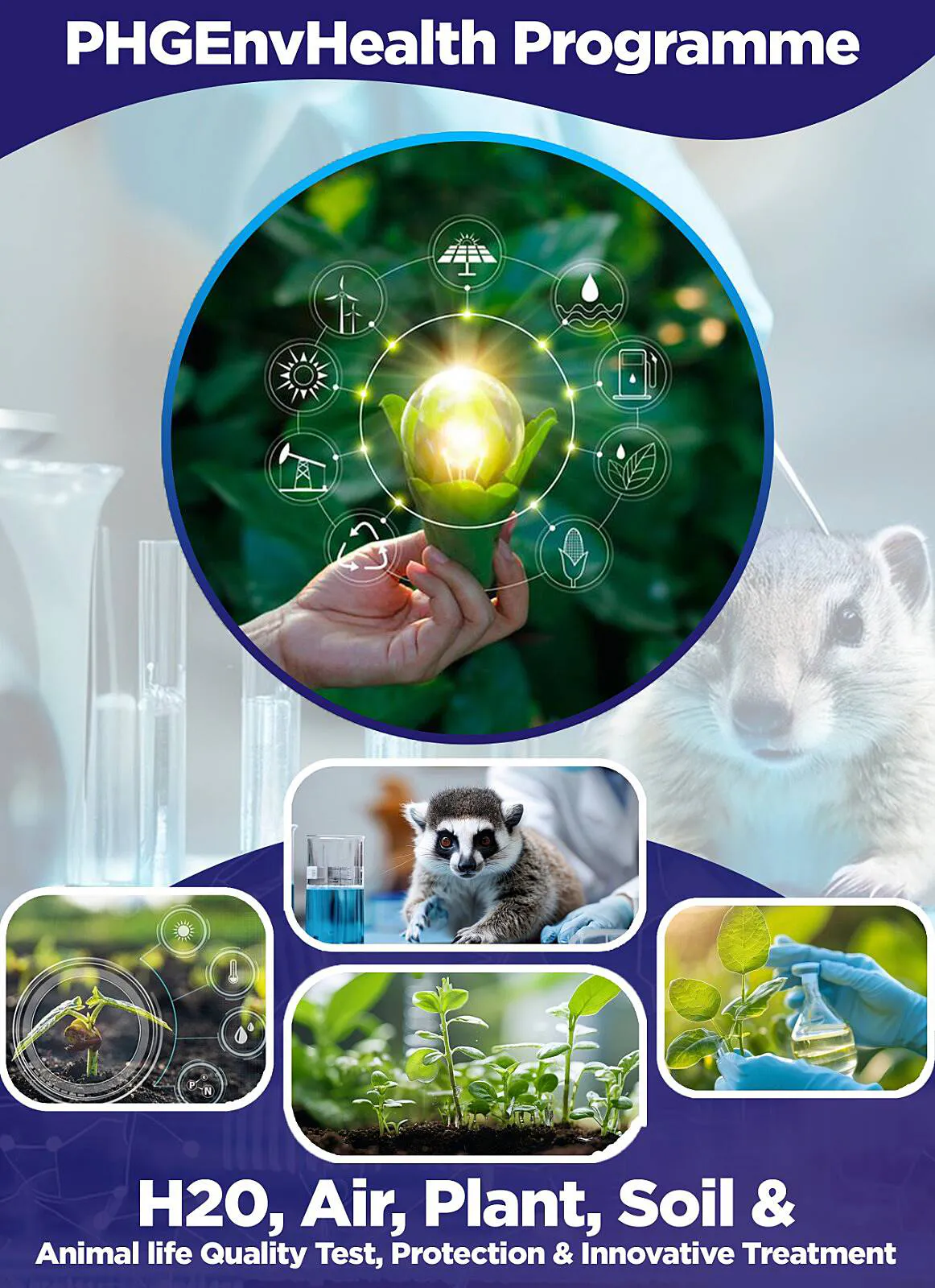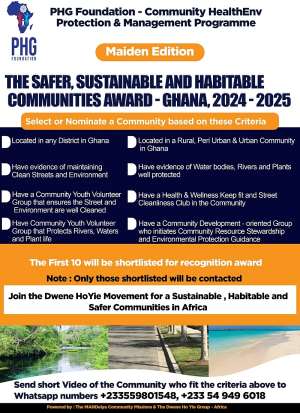PHG Foundation & Consultancy Partners - Alternate Solution towards Sustainable Communities Mining & Environmental Resource Protection Programme for Ghana
Many in Ghana and around the world have witnessed the destructive impact of "galamsey" mining on water bodies, plants, rivers, food supplies, animals, and human lives. It poses a serious threat to all living things, both present and future, in Ghana and beyond, as these polluted waters flow into neighboring countries.
Governments have employed various strategies to combat this menace, yet it remains an albatross hanging around their necks.

After engaging with communities and small-scale miners involved in galamsey, who lack water and plant protection mechanisms, and consulting with our environment and health technical team, as well as community development experts, we have concluded that the largely top-down, radical approaches to fighting galamsey—despite heavy investments in military and law enforcement—are insufficient. The problem persists, with water bodies, plants, and human lives being destroyed on a large scale. Clearly, more needs to be done. Many are calling for the depoliticization of this issue to foster sober reflection and meaningful engagement.
Call for Stakeholder Action and Sustainable Solution Mapping
It is time for all rational and well-meaning Ghanaians to pause and reflect: Why does this problem persist?
We believe that the approach to fighting the menace requires further reflection, a retrospective review, restructuring, and re-engagement among all stakeholders. The focus should be on applying human-centered, purposeful, and actionable measures to develop sustainable, community-driven solutions.
A bottom-up approach to stakeholder engagement is essential, involving communities and individuals. This should include the implementation of water recycling and treatment systems on their lands, aimed at protecting water bodies, rivers, and plants, with strict limitations and enforcement on river and forest reserve mining and land reclamation. While current interventions targeting the tools and equipment used by galamsey operators may offer immediate solutions, they are unlikely to lead to sustainable outcomes. Without transforming the human element—through engagement for sustainable practices, behavior change, land reclamation, alternate livelihood training, and law enforcement for reforms—such interventions may backfire.
While it may be costly, it is not more expensive than the significant investments successive governments have already made to combat galamsey. Those who can afford the expensive machinery used for mining should be able to invest in solutions that protect the environment.
We need to approach the issue with sober reflection and intentional engagement, focusing on sustainable, alternative solutions backed by law. These solutions must be co-created with communities, ensuring ownership of agreed-upon resolutions for monitoring and impact assessment.

Our Programme
Our consultancy partners and we have designed a Sustainable Health & Environment Protection Programme that aligns with this vision. If the Ministries, the Government of Ghana, and community mining companies are willing to support it, the programme can be piloted, tested, and expanded to protect our water bodies, plants, lives, and land resources through sustainable mining practices.
By: Michael Nsowah - Programmes Innovation Lead, PHG Foundation & Consultancy Partners (Grassroot Communities Innovation Development Centre, Ghana - West Africa)
Contact:
Message PHG Community Innovation Projects DevHub on WhatsApp: https://wa.me/233242029161
Email: maduseinsowah@gmail.com, info@phgfoundationafrica.org
Copy:
All Ghanaians, Environmental Protection Agencies, Ministries, Small Scale Mining Organizations, Community Leaders, Government, and Media Houses.

0 Comment(s)